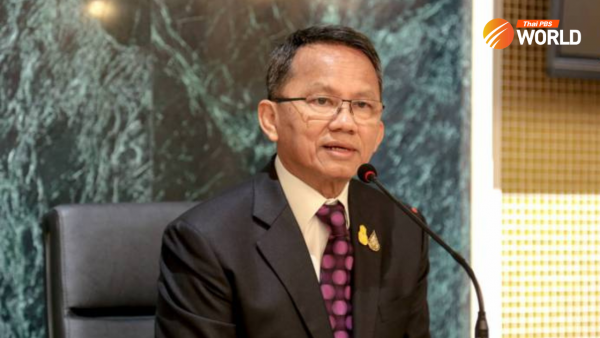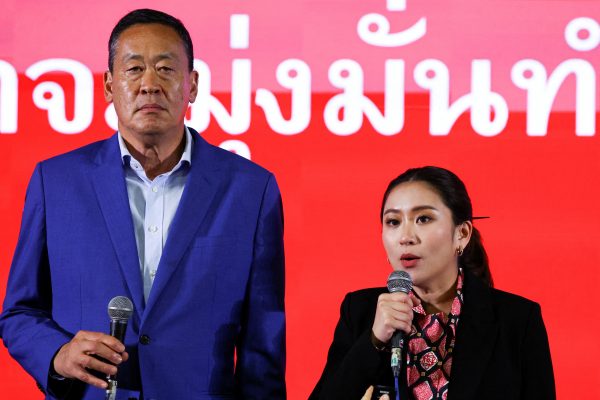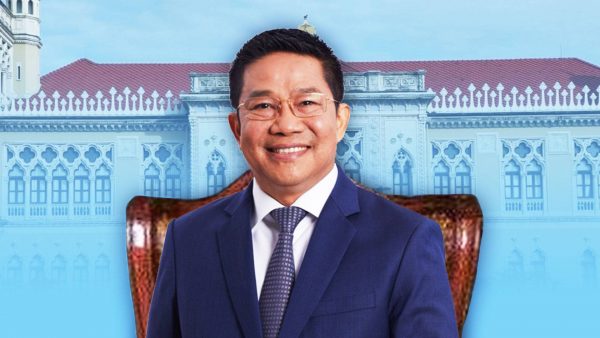Can Chadchart solve multibillion-baht puzzle and get Skytrain back on track?

Three months after Chadchart Sittipunt took over as governor, his Bangkok Metropolitan Administration (BMA) is still struggling to solve the complicated problems surrounding the BTS Green Line and its extensions.
Even the slightest change to services or fares on the Green Line will impact millions of commuters in Greater Bangkok.
“We will have to consult several agencies,” said Prof Tongthong Chandrasu, chairman and president of Krungthep Thanakom (KT), BMA’s business arm.
“Eventually, we may have to rely on the Council of State [to solve the problems],” he added, referring to the government’s legal advisors.
Tongthong took over KT with the full backing of Chadchart, who hoped he would help untangle the Green Line snarl.
What is the Green Line?
The Green Line is the name for the original BTS route that covers the inner zone of the capital. It has been extended in two phases since launching operations in 1999.
In Phase 1, the extension covered a 2.2-kilometre stretch on the Silom route from Saphan Taksin to Wongwian Yai and then on to Bang Wa station. The Sukhumvit route was also extended with a 5.25km stretch running south from Onnut to Bearing station.
In Phase 2, the extensions were expanded with 13 more stations added between Bearing and Kheha stations in Samut Prakan and 12 stations after the Mo Chit station leading North to Pathum Thani.
The Green Line currently covers 59 stations spanning three provinces and running a total distance of 67.45km.
The concession to operate the line is held by Bangkok Mass Transit System Plc (BTSC), which invested in the construction of the original BTS network. However, BTSC now also shares the concession with other investors via a fund.
Things started to get complicated when the Green Line was extended. BMA appointed KT to manage the original network for 13 years (2029-2042) after BTSC’s concession expires. However, KT hired BTSC to run the Green Line including the extension routes until 2042.
Yet it appears that KT and BTSC only have a solid contract for the operation of the Phase 1 extension, while confusion reigns over the concession for Phase 2.
Meanwhile, BMA still owes a huge amount of money to BTSC for the installation of the train-operation system and services of the extension routes. Following negotiations involving a committee set up by the junta leader, the amount owed to BTSC by BMA has exceeded 35.4 billion baht.
“We have raised this issue with the Cabinet and are now waiting for feedback,” the governor said.
Will BMA pay up?
Chadchart said funds to cover the Phase 2 extension routes have been included in BMA’s annual expenditure budget. This indicates that the Bangkok Metropolitan Council (BMC), which serves as a Parliament for the capital, knew nothing about KT being appointed to operate the Phase 2 extension routes.
“We have also found that while the contract for operating the Phase 1 extension route clearly states how much funding is required, for the Phase 2 extension, there is just a memo saying that KT has been assigned to take charge of operations. Sums mentioned in the memo are also just rough figures,” Chadchart said.
The new Bangkok governor also explained that documents for the Phase 2 extension routes stipulate that KT is not a representative of the BMA.
Tongthong believes this issue is complicated enough to require the attention of the Council of State, otherwise disputes over the Green Line may become a never-ending saga.
“There is also a possibility that KT will have to shoulder the debts, not the BMA,” he said.
Transparency and data disclosure
While the BMA has published its Green Line contract/memo with KT in a bid to promote transparency, it has not yet revealed the agreement it made with BTSC, citing concerns over possible legal consequences.
Normally, such agreements are strictly confidential, with public disclosure potentially leading to more disputes.
“We are consulting the Office of the Attorney-General about disclosing these agreements,” Tongthong said.
Neither Chadchart nor Tongthong were involved in the preparation of contracts related to the Green Line, which occurred years before they took their current posts.
Tongthong Chandransu: Law guru unlocking Bangkok’s multibillion-baht investment secrets
What does BTSC have to say?
BTSC chairman Keeree Kanjanapas said he does not understand why BMA and KT have shifted the focus to disclosing confidential documents.
“I must point out that when the authorities sign contracts for the Pink or Yellow lines, those contracts will also contain a clause guaranteeing the confidentiality,” he said of future rail concessions.
Keeree also said it was not possible that the BMA knew nothing about the deals signed by KT for the operation of the Green Line, because BMA is KT’s biggest shareholder.
“Let me make things clear, we are the creditor, not a defendant,” he said.
He added that BTSC has not been pressing BMA hard for the payment of its debt recently because Chadchart has only just started his term and needs time to study the case.
Impacts on passengers?
Whatever solution is eventually found for the Green Line dispute between BMA, KT and BTSC, it will have a big impact on commuters.
If negotiations do not go well, fares will inevitably rise, adding to the cost of living crisis. However, if talks are productive, then fares will remain unchanged.
Saree Ongsomwang, secretary-general of the Thailand Consumer Council, has voiced strong opposition to plans for a minimum Green Line fare of 14 baht with 2 baht added for each station travelled but with the maximum fare capped at 59 baht. Saree believes the maximum fare should not exceed 54 baht.
Expert recommendation
Prapat Chongsanguan, former head of the State Railway of Thailand and the Mass Rapid Transit Authority of Thailand, said there were several points of contention in the Green Line saga. These include questions over why there was no BMC approval for the Phase 2 extension and why the BTSC concession for the extension does not expire at the same time as its concession for the rest of the route.
“But given that these problems are already in existence, it may be time to bring all points to the negotiation table. Do not address just one or some, but correct each and every point once and for all,” he said.
By Thai PBS World’s General Desk






